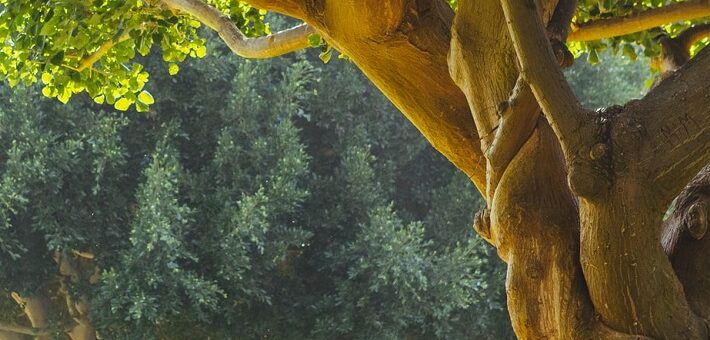Commentary on Luke 19:1-10
Zacchaeus’ body has gone up in importance in the political system, with the results of economic gain and religious loss. Zacchaeus is a chief tax collector and wealthy but his job renders him lost to his own religious community. At least the gospel of Luke is constantly putting together sinners, prostitutes, and tax collectors as lost ones. Jesus enters the scene to change his audience’s gaze upon this Jew who works for the Roman empire. Using a Practical Theology hermeneutical methodology in which marginalization is the entry point to identify a correlation of social locations, it is possible to locate recurrent scenarios in the story of Jesus and Zacchaeus.1
Familiar scenarios
Zacchaeus is a jíbaro (peasant) who became chief tax collector and wealthy. Jesus is a poor jíbaro (peasant) whose popularity is on the rise. From the perspective of a person born and raised in a present-day colony such as Puerto Rico is, Zacchaeus today would be a regional chief of the IRS or the Secretary of the Treasury Department of Puerto Rico. Imagine one of these Puerto Rican jíbaro officers of the United States of America, the present-day empire, climbing a tree to see an impoverished person, raised in the rural areas of the archipelago, and followed by crowds. Zacchaeus, the once jíbaro, became well-known and now wants to know: Who is this other jíbaro, becoming well-known?
This story confronts us with our embodied knowledge. In US Society, as well as the Puerto Rican society, it is acceptable for a kid to climb a tree, but not for a grown man, and definitely not for an officer of the state. But what if there is a physical disability? Zacchaeus is a person of short stature, thus he might have been a person with dwarfism.2 In that case, it would have been a quotidian experience to use anything available, in this case a tree, to accommodate physical needs.3 Either way, Zacchaeus’ behavior was outside of social expectations, not readily acceptable. Zacchaeus embodies contradiction, upward mobility and inerasable marginalization.
The plot is a (hi)story that repeats itself across places and times. It is the story of a person who belongs to an oppressed people by birth but joins the ranks of the foreigners/oppressors by trade, resulting in gain for the person and their family while contributing to the oppression of the community. Were there government officials stealing the aid for the victims of the hurricanes?4 Have there been former governors and presidents searched or arrested for stealing public funds or being corrupt?5 Do we assume that all politicians and people in office are corrupt? How could Zacchaeus be a tax collector and live up to the standards of piety of his religion?
Focusing on the body: action words in the text
It is easy to join the ranks of those who look down on Zacchaeus. From a prophetic standpoint, it is necessary to condemn the behavior of these politicians and tax collectors. It is easy for us to identify with Jesus, the hero of the synoptic gospels, and vilify Zacchaeus. But Luke 19:1-10 is there reminding us that high ecclesial officers vilified Jesus by association. In the gospel of Luke, Jesus is the glutton and drunk that eats and drinks often with sinners, prostitutes, and tax collectors. Here he goes again. Jesus invites himself to Zacchaeus’ house and I’m thinking, “you gotta have some nerve to invite yourself to the house of the Secretary of the Treasury!”
This reading focused on the body zooms in the words, “looked up,” “come down,” “stood there.” It took Jesus to look up to Zacchaeus and ask him to come down, for Zacchaeus to stand. Jesus physically looked up to a person of short stature who was used to other people looking down on him. Hearing Jesus’ call to come down, Zacchaeus complied and eventually stood there asserting or announcing the practices of charity and of reparations.6 The orientation of the bodies in the story provide points of contact to establish correlations. This story calls the Church to look up to those who the systems looked down upon, to treat them with respect and honor their efforts to accommodate their own shortcomings, which are caused by the same systems. These systems may be political, social, economic, and religious. This story calls the pious to come down from the hierarchical systems because the right thing to do is to eat with peasants and host our own people. This story calls the pious to stand there and proclaim that we will begin or continue the practices of charity and reparations.
Focusing on the body: our actions for today’s world
How is this different from what we are already doing? As the body of Christ, the Church, institutions and people, should emulate Jesus’ actions. Jesus looked up but we keep looking down on the receivers of our charity. We are the pious ones sharing tables with people experiencing poverty and homelessness and we look down on them as if our own wealth and lifestyle had nothing to do with their situations. We feel good about the church’s pantry ministry when today what Jesus wants is for us to look up to those who are climbing the systems and have established themselves in higher socio-economic locations and ask them to come down. Wait! Is that us?! Is Jesus looking up at us and asking us to come down and host him? Is Jesus expecting us to sell everything, give it to the poor, and follow him? Is our job then to finally stand because we have been sitting down at the tax collecting table or at the dining table with Jesus? Is our job to stand up to proclaim individual piety, personal salvation, and/or our commitment to reparations? Are we supposed to be like Jesus? … like Zacchaeus? … like both?
Notes
- This approach to biblical interpretation draws on the hermeneutical methodology in Justo L. González and Pablo A. Jiménez, Púlpito: An Introduction to Hispanic Preaching (Nashville, TN: Abingdon Press, 2005), 44-45; method of correlation in Richard R. Osmer, Practical Theology: An Introduction (Grand Rapids, MI: William B. Eerdmans Pub. Co., 2008); and scenarios as episteme in Diana Taylor, The Archive and the Repertoire: Performing Cultural Memory in the Americas (Durham, NC: Duke University Press, 2003).
- Understanding Dwarfism, “Basic Facts About Dwarfism,” Accessed August 14, 2022, http://understandingdwarfism.com/basic-facts/
- Dwarfism factsheet (for schools), Reviewed by: Mary L. Gavin, MD, Accessed August 14, 2022, https://kidshealth.org/en/parents/dwarfism-factsheet.html
- Francisco Arguello, “Roban las ayudas para unos 26.000 damnificados por el invierno colombiano,” El Mundo.es, Neiva, Colombia, Actualizado 29 de abril de 2011, https://www.elmundo.es/america/2011/04/29/colombia/1304096340.html
- The Associated Press, “Arrestan a Wanda Vázquez, ex gobernadora de Puerto Rico,” Al Día, San Juan, Puerto Rico, August 4, 2022, https://www.dallasnews.com/espanol/al-dia/noticias/2022/08/04/puerto-rico-wanda-vazquez-arresto/, BBC News, “Trump search warrant: FBI took top secret files from Mar-a-Lago,” United States and Canada, August 13, 2022.
- See, Joseph A. Fitzmyer, S.J., “Zacchaeus (19:1–10),” in The Gospel According To Luke (X–XXIV): Introduction, Translation, and Notes by, 1218–1227 (New Haven & London: The Anchor Yale Bible, 1985), Accessed August 14, 2022, http://dx.doi.org/10.5040/9780300261653. See also, Amy-Jill Levine and Marc Zvi Brettler, The Jewish Annotated New Testament New Revised Standard Version Bible Translation, Kindle edition (Oxford: Oxford University Press, 2017), 637.


October 30, 2022